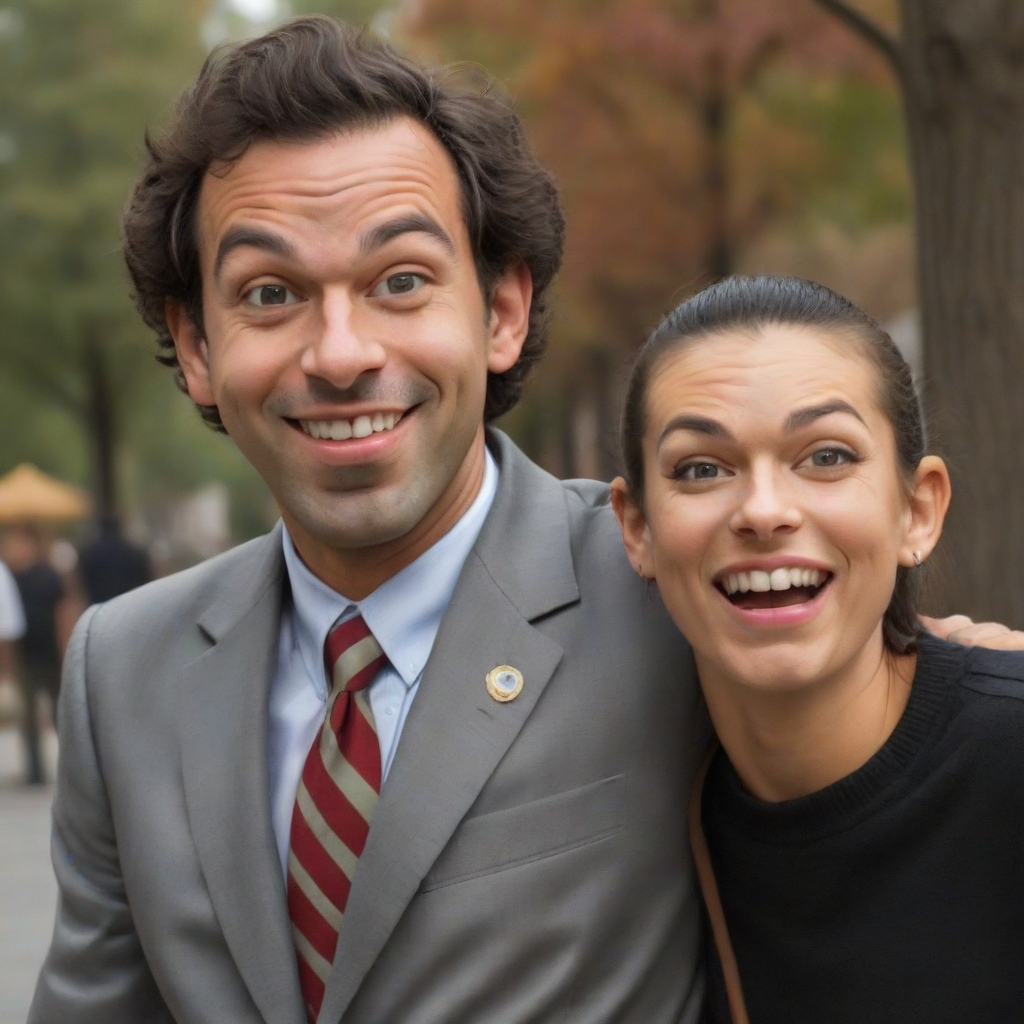Can’t believe even history is going WOKE! 😡
/s
Using the word woke unironically is one of the best tells that someone is an idiot.
As an insult, yeah, but not if it’s the original context like “stay woke”
Okay! You got me there!
i hope i never have to tell anybody i just w*ke up from a nap
Honestly have no idea what “woke” even is. Seems to be a word the right uses to describe anything they don’t like.

The downvoters don’t realize that science is all about finding out about stuff. The whys, the hows… you know, what “woke” people do.
I had always assumed that Hunter-Gatherer societies were very loosely sex divided and strongly necessity based. Meaning, sure men could be the typical hunter and women the typical gatherer but if necessity dictates, any person would do any job, and, given the times, that was probably frequently.
Furthermore they also likely didn’t have societal structures the way modern societies did, meaning people likely weren’t barred from any job or forced into any job, it was a community effort for survival, if you meet a criteria that can help, you do that.
These are not factual statements, these are just my assumptions on how I figured they reasonably existed.
At least some of them took the kids down to the creek every 6 months or so, and threw the babies in the water to see who would swim. The ones that didn’t swim stayed back at the camp and fixed pottery, cleaned, cooked, etc. The swimmers became the hunters and gatherers. Several of the Native American Nations in the Eastern US did this when white man came over and invaded. According to their oral histories, they had been doing this for a few tens of thousands of years, which seems to match up to the archaeological evidence we’ve found in the last couple decades.
Ah yes, the two genders, can swim and not can swim
Same here: the t seems the most logical answer. I’m not especially convinced by the arguments in this article, except that they are at least as strong as “man the hunter” arguments so neither changes my mind
Man the hunter presupposes any woman is weaker than the weakest man. It really is junk science. When they say those guys ignored evidence of women hunting, they mean it. And at the end of the day, women doing it is the biggest evidence you’re going to find.
Well… many of the younger women would be constantly pregnant back then, and engaged in communal child rearing. So they are going to be spending less time on mammoth hunts.
Ancient people’s also worked way less than we do now.
deleted by creator
I absolutely agree with the thesis that both men and women hunted, but I think the claims of women’s superior endurance are not represented in reality. The fastest marathon time for men is 2 hours 1 minute and for women it is 2 hours 14 minutes. These were in 2023 and 2019 respectively, so it’s not like it was years ago with drastically different treatment of the sexes. Both runners were Kenyans too, so that limits non-sex based biological differences.
I don’t buy that it is socialization. For one thing, the difference disappears in sports like shooting and horseback riding where physicality is not the determining factor. On top of that, when children compete at sports there are negligible performance differences until after puberty. The article mentions the record a woman holds for swimming across the English Channel. I think that women’s higher body fat provides buoyancy that massively reduces the energy required to stay afloat for a prolonged time. We don’t see the same supposed superiority in other endurance events.
This link touches on many of the same topics as the main article and adds some more info.
https://www.bbc.com/future/article/20240731-the-sports-where-women-outperform-men
If you look at races that are longer than marathons it seems that the women have the upper edge. https://ultra-x.co/are-women-better-than-men-at-ultra-running/
But that doesn’t necessarily correlate with hunting.
Well, the theory is that persistence hunting was one of the main hunting strategies during a large portion of human evolution before ranged weapons were invented. So it may well have relevance for distribution of labor between men and women during most of human prehistory, and therefore our evolutionary psychology.
persistence hunting was one of the main hunting strategies during a large portion of human evolution before ranged weapons were invented
How do ranged weapons invalidate persistence hunting?
If you’re trying to chase down an animal till it’s exhausted, I think you’d want to be throwing stuff at it to injure or at least to keep it moving.
Also, was there a time before ranged weapons? As soon as humans have weapons we have ranged weapons because we can throw. Atlatls and slings - tools to help you throw sticks and stones - wouldn’t have been developed if we weren’t already throwing sticks and stones at things.
How do ranged weapons invalidate persistence hunting?
Even with a modern bow it’s still really difficult to sneak close enough to a deer to reliably make a kill shot. You’re not going to sneak close enough to poke it with a spear and with game that size, throwing rocks is not really an option either because that wont kill it. Something like axis deer is quick enough to even dodge a modern arrow.
The reality is that the animal will notice you and it will out-sprint you as well but it wont outrun a human on a long distance. When the animal is exhausted and no more able to run, then you can then stick your spear in it.
The OP article said the same thing, and like this article, it provides no evidence for the statement. I looked for some numbers, and for world bests, men had better performance in every category I found. The study linked below looked at speeds over decades and in every case men had better performance. Both men and women have improved over time, and as a percentage the difference is getting smaller, but in absolute difference it appears the same. It is an admittedly brief search, but I can’t find evidence in the form of measured times (not conjecture about estrogen) indicating at all that women perform better in ultra marathons. https://www.ncbi.nlm.nih.gov/pmc/articles/PMC3870311
Those are athletes. To really know, you would need to use average people going for the same time/distance at more moderate speeds. While the fastest men are probably faster than the fastest women across most any distance, I doubt we have good data on average men and women going the same distances.
Right. Even with persistence hunting, I doubt our ancestors were going 50+ miles chasing prey.
i thought the same thing, but these people persistence hunt today for over 8 hours. no mention of total distance but 8 hours is no joke.
That is definitely impressive stamina. An Olympic marathoner can average 12mph for around 2 hours and an “average” marathoner does 8mph, but that is on a road or track. Savannah is one of the few terrains where you could approach those speeds. I would believe they could go 50 miles on a hunt. Trying to run far in sand or snow, through heavy vegetation, or up and down mountains drastically increases the energy it takes (and the max distance and speed you are capable of). That’s a whole other thing.
deleted by creator
Speed of marathon doesn’t necessarily serve as a benchmark for endurance, does it? Endurance is a metric of how tired you get over time, no? A cheetah can run 1km waaaay faster than a human. Doesn’t mean that it has better endurance than humans.
What (widely popular) race could possibly be a better metric of endurance than the marathon?
The fastest marathon time for men is 2 hours 1 minute and for women it is 2 hours 14 minutes.
“Fastest” does not mean the best endurance. You would be looking at the “longest”.
There have been several people, men and women who run a marathon every day for months or even years on end. In that sense there is no upper limit, but those people almost certainly all have a genetic mutation which most people don’t that prevents lactic acid buildup.
How would speed of a marathon show endurance?
How does it not? Running 26 miles takes endurance and running it fast takes even more endurance.
Stride length would like a word.
Strength, speed, and endurance are related. You’re right. But it’s not as clear as faster time == better endurance.
Longer stride length also equals a heavier body weight to move. I’m sure there’s some sort of graph where the vertex represents the most efficient combination of those factors.
The fastest marathon time for men is 2 hours 1 minute and for women it is 2 hours 14 minutes.
It’s an unacceptable leap in logic to infer (from that statement) anything about populations of men and women. You’ve picked only a single sample from each population and chosen that highly biased representative.
That set is inclusive of every official marathon ever ran, so no it is not a single sample. We see consistently that the women’s record always is slower than the men’s record.
Fair, but it’s also limited to the very top of the bell curve at any point in time.
Let’s run a marathon where everyone is underfed and has foot injuries as well as painful dental problems. I guarantee you more women will finish the race ;D
Most marathon runners have a lower body fat than is considered medically healthy and their toe nails pop off during the race, so we are already 2/3 of the way there.
My theory is that men evolved much higher grip strength due to incessant masturbation.
Wouldn’t the men who were “best” at masturbation have the fewest children?
Have you had sex? One doesnt prevent the other from happening
No, they wouldn’t. What does “best” mean in this context, anyway?
Obvs strongest penis grip.
So the best masturbator in history probably only got to try it once?
He means they wouldn’t need women, because they were THE BEST!
Can confirm. I am the best at masturbation and I only have one child.
How hard are you guys squeezing your dick?? That sounds incredibly painful.
Strong enough to crush coal into diamond.
Get that diamond dick brother
Mounting evidence from exercise science indicates that women are physiologically better suited than men to endurance efforts such as running marathons.
Looking at marathon athletic records; that’s not at all true and took me about 3 min to verify. In fact, out of all the top 25 record times, all are by men (and almost all Kenyan and Ethiopian men).
What is this tripe? They could at least try to be serious…
your are connecting two different pieces of data. The speed that a person can run a marathon vs. the ability to run a marathon.
What they are stating is that women are better able to run that distance not that they are faster at running that distance than men.
Ok, better how, you mean?
Speed is less of a factor than endurance in a persistence-hunting scenario where we’re much slower than our prey anyway.
I don’t know the facts for this specific claim, but the logic is fair. One group can be better suited for endurance without being faster. One group could also be faster on average without having the individual fastest performers. Not only because of cultural factors, but also because the distribution curves might have different shapes for men vs women. There could be greater outliers (top performers) among men even if the average is higher among women in general. It’s not necessarily as straightforward as, say, height, where men’s distribution curve is almost the same shape as women’s, just shifted up a few inches.
I don’t have the data to draw any real conclusions, though.
One of the problems looking at athletic records is that it’s really just the elite among a self-selected group of enthusiasts, which doesn’t tell us a whole lot about what might have been the norm 100,000 years ago, or what might be the norm today if all else were equal between genders. These are not controlled trials.
I’ve read that the top women outperform the top men in long-distance open-water swimming, supposedly due in part to higher body fat making women more buoyant, helping to regulate body temperature, and providing fuel. This is the first time I’ve read that women might have an advantage in running, though.
I wish the article provided citations. The reality is probably too complex to fit into a headline or pop-sci writeup.
I just looked at the measured data and came to a conclusion. I don’t even know what conclusion you’re trying to communicate, but it beats me…
I explained why that data does not contradict what the previous commenter was trying to say.
I was asking the commenter to explain what a ‘better’ runner is supposed to mean? And tou perhaps was answering something else…
Better doesn’t always equal faster.
Better can equal going further.
Better can equal being more efficient.
Efficient means using less calories to do the same thing.
Maybe a better runner uses calories more efficiently.
From what I’ve researched in the past ( I don’t have time to look it up) is that due to fact that women naturally hold more body fat than men that they then have more energy to use on endurance runs. That while they are not faster than men due to smaller muscles they can move for longer periods of time due to having more fat energy.
I could be wrong it happens often with me.
That may be, who knows (without supprting evidence)? But see, things is, I don’t think hearsay is what a good article in Scientific American should be based on.
If you read the article that was posted, you will see that it confirms what they just stated.
Nowhere does it definitely state that’s the case. In fact, the data doesn’t even support that claim since women should excel at ultra marathons, but they don’t. In fact, women don’t excel in any running exercise that I can find.
It’s in the ultra marathons that women keep up with men and sometimes beat them
What? I just looked at the records for ultramarathons, and there is not a single instance of women beating men for their respective runs.
For the IAU records on Wikipedia, yeah. A couple things to keep in mind, 80% of the people who complete an ultra marathon are male. And the gap between the sexes, some estimate around 4% for ultra marathons, seems to be trending down.
Here’s better research I found. You’re right, men still win more often and have the records. But honestly it’s more complicated than just who is faster.
As I said to them above- it’s like suggesting that Olympic target shooters would make the best range hunters. Just being able to run long distances quickly is not any sort of indication someone will be the best endurance hunter.
In backyard ultras, where competitors keep running until they can no longer maintain a pace of approximately 4 mph, the male record is 50% longer at 450 miles than the female record of 300 miles.
I agree that they overstated their point there. But regardless, I think it’s fair to say that any differences between men and women in these sports are fairly small, so I don’t think it changes the overall conclusion.
The men’s world record marathon time is 9% faster than the women’s. That’s significant. The male runner would finish over two miles ahead of the female runner.
Women were first allowed to compete in marathons in 1972. In 1972 the men’s record was 2:10:30. The current record is 2:00:35 which is about an 8% difference. Pretty close to the difference between men and women currently.
The first women’s record was 3:40:22 and the current women’s record is 2:11:53.11 which is 40% faster.
Once funding for women’s athletics reaches parity and once girls are encouraged into athletics as much as boys, then we will see if the ladies catch up. So far they’re doing a pretty good job catching up, and you can’t look at one current window in time and say you have the answer, you need to look at trends.
And that’s what people miss when quoting sports statistics. They confuse culture with biology. We live in a society that imparts certain roles based on gender. Men are encouraged to exercise and run more from a young age than women are. In an egalitarian society, that disparity wouldn’t exist. We really can’t say how things would play out. That’s why studies of paleolithic skeletons are a much better tool than just navel-gazing based on modern sports. Those statistics cannot be separated from our current society. Instead of just speculating, we can look at the actual skeletons of paleolithic people, which this article discusses. These skeletons record a record of the kinds of lives these people lived. There’s no need to speculate; we can ask these people directly how they lived.
I wouldn’t consider 9% to be that large in this context. Certainly a difference that would be overshadowed by individual variation.
Even if we assume women are physiologically 9% slower at persistence hunting (which that statistic is far from proving) it still suggests they could and likely were successful at it, albeit maybe not the very best.
How many marathons are run in a weaving path on uneven ground full of underbrush while trying to keep up with an animal that could potentially go in any direction at any time in the hopes that it will get tired before you do?
Because otherwise this marathon measurement is silly.
Huh, I wonder why virtually every uncontacted tribe we’ve found so far has the men doing all* the hunting?
*I don’t consider foraging for clams hunting, but people are free to disagree
Certainly a question for the ages. If only there was some way to learn more about this topic… perhaps some kind of article. Maybe one that even addresses this very point. But alas…
Tap for spoiler
Abigail Anderson and Cara Wall-Scheffler, both then at Seattle Pacific University, and their colleagues reported that 79 percent of the 63 foraging societies with clear descriptions of their hunting strategies feature women hunters.
Sigh, taking such claims at face value and not looking into how the underlying data was obtained is how we end up with so many successfully published but false scientific papers.
The paper referenced here is https://journals.plos.org/plosone/article?id=10.1371/journal.pone.0287101
The cultures ‘surveyed’ are
https://journals.plos.org/plosone/article/figure?id=10.1371/journal.pone.0287101.t001
Notice any uncontacted peoples missing from those data points? Here’s a quick list of them from Wikipedia
https://en.wikipedia.org/wiki/Uncontacted_peoples
Immediately I can tell you the Sentinelese, Awa, Toromona, Nukak, Tagaeri and the Taromenanepeople are not represented here. It’s almost like the societies selected for this paper weren’t a complete picture.
I wonder why that would be… surely not to conform to any biases of the authors.
You think they should have surveyed the uncontacted people?
Uncontacted peoples are groups of Indigenous peoplesliving without sustained contact with neighbouring communities and the world community.
It’s right there in the link I provided, so yes, because infrequent contact and observation is possible.
You explicitly mentioned the Sentinelese. Exactly how would you go about this infrequent contact and observation with them?
In any case, let’s assume that hunting is exclusively performed by males in all of those peoples. How much would that change the statistic and the overall conclusion? 79% would be 72%
We have these things called binoculars, telescopes, cameras and drones. All of which are able to observe subjects from a safe distance.
I suspect that the number would be around a 50% split, what would then be interesting is determining which group has a better diet and survival rate to determine which tactic is superior.
I suspect not. To get to 50%, they would need to study an additional 37 societies, and every single one would have to have only males doing the hunting.
We have these things called binoculars, telescopes, cameras and drones. All of which are able to observe subjects from a safe distance.
Binoculars, telescopes and cameras will tell you little about what islanders are doing inside the forest where they hunt if you are using them from the ocean. Drones flying over Sentinel Island would violate Indian law and whoever did it would be in huge trouble. Their data would likely be disregarded due to the ethical issues.
On top of that, if they heard a drone coming, they might just change what they normally do.
Like these people. Hunting becomes less of an issue suddenly when there’s a flying threat.
I look forward to reading your study.
So there are tribes with both dynamics, maybe more one than the other?. We can also look at things like, say, competitive records between “sexes” (it’s a spectrum, so the binary divide is weird to begin with, but I digress). Men run on average like 30 seconds faster on the mile than women in societies with clear disadvantages to women’s training.
Is this actually significant enough to exclude women? I fail to see how it could be for a role that requires a multitude of skills.
Society’s seem to have stratified based on sex to “protect” women, and maybe a lot of women even prefer it. The issue is when we use some societal preferences to override the individual and prescribe roles before the individual can even develop their own preference (men and enbies included).
What I’m seeing are some societies seem to have figured that out well enough, others are more oppressive.
I am concerned only with the factuality of the data presented and have zero interest in cultural implications and any inferences that may be drawn from them.
You do you. Data alone is pretty useless to me.
Conclusions drawn from incomplete or misleading data are worthless to everyone
If you think my argument is missing something, by all means, it would be useful to say that rather than passive aggressive.
I can’t believe so many people upvoted this comment. Do they just assume because there are lots of words and you referenced the original paper that this is a good critique? But I guess a lot of people just turn off their brain when they feel cognitive dissonance.
Do you know what a survey is? It’s not meant to be comprehensive, it’s supposed to be representative. Furthermore, it is based on existing ethnographic data, so it’s obviously not going to include data on tribes that are currently uncontacted, because there is little or none. The reasons why are obvious but since you don’t seem to understand, we can spell it out.
Conducting anthropological research on these tribes typically involves going to the tribe and living with, observing, and interviewing them for an extended period to fully understand their culture and way of life. This is not advisable with uncontacted tribes because it is dangerous for researchers and dangerous for the tribe which may lack exposure to endemic diseases in the rest of the world. It’s simply not done and I guarantee no ethics board would approve such research today.
Furthermore, it’s hilarious to suggest that the authors deliberately omitted cultures we know little about to reinforce their own agenda. How would they even know which tribes the exclude? And, as others have pointed out, even if all of these uncontacted tribes had only male hunting (a fact which would be highly surprising), it would barely change the conclusion here that in most forager societies, women engage in hunting.
Overall, this seems a very bad-faith critique. It’s good to delve into the science and examine whether a given paper was conducted in a sound way, but you need to approach it with an open mind, not just seek to undermine it with the simplest and most superficial criticism you can conceive of that supports your pre-existing position.
Ah, the sound of Joe Rogan’s head exploding.
Naked and Afraid and Women Who Hunt
Sounds like a very …interesting show.
Removed by mod
It seems obvious that some of the women would be better hunters than some of the men. But that only suggests that too much specialization was bad, not that there wasn’t any specialization at all. So headline seems wrong.
Also persistent hunting seems like the most inefficient type of hunting. You exhaust yourself and the prey and loose calories, the time it takes, traveling far over unknown terrain and then having to carry it all the way back and beware other predators. Is the argument that women are best at “shitty hunting”?
I imagine you’d track an animal, get close, throw spear, miss, keep tracking the animal. And if they haven’t invented the spear yet, can they even be called human?
Running an animal to death is just one method. Useful on a hot day when your prey is far more susceptible to heat exhaustion/stroke than you are. And the calories gained from the animal outweigh the calories expended to gain them.
I think the wrong point of view here is using evolution as the biological term. As we are genetically make to do that. We probably are not. As most human behavior is not a product of genetics but a product of culture.
As most human behavior is not a product of genetics but a product of culture.
Pretty sure it’s a heavy combination of the 2. Not just culture
Were you also watching Seinfeld yesterday? It was one of his stand-up bits before or after the show
women want to see what’s on TV, men just want to see what else is on TV.
one of those jokes that’s about to age out of relevance.
I was thinking about that as well
“science”
Did you… read the article?
I did! Running endurance today is nothing. The maon issue is, most women then would have had children early on in life. Having children can mess up womens hips, causing problems with running. That is if they lived through child birth and healed properly afterwards. They can assume what they want though, none of us were there, and there is no going back. 🤷
That’s a ton of assumption and reductionism. This is frankly insulting. Your primary argument that endurance is meaningless only makes me think that it comes from many current popular sports that rely on fastest speeds rather than what the article was actually trying to convey. Women in the past could have and did hunt, especially given that many in several different cultures were buried with hunting weapons, and the article used the scientific nature of a woman’s body to prove her endurance. Just because you discount endurance completely doesn’t mean the rest of society is so closed minded.
Maybe women hunted, probably they did, maybe they didn’t. Being able to run 100+ miles is freaking cool and great.
You DONT ENDURANCE HUNT into the next state. This is shit “evidence” of anything. It does not matter if you can lift 25% of not very much 2000% more than someone else can lift 25% of a lot, or if you can walk until 8 days from now and be less tired than someone else.
The premise is probably true that men and women both hunted, but endurance++ isn’t a cut and dry argument for being a good huntress.
deleted by creator
Removed by mod
Yeah this article is almost a year old and it got torn up when published last year. People already knew women helped hunt. But acting like that was a primary role without evidence because of modern sports science is silly.
I’m also curious about the role pregnancy plays into all of this. Obviously everyone back then would need to help out in any way they could back then, but without contraceptives how frequently would women be pregnant? It seems like that would play the largest contributing factor into roles/responsibilities and the article seems to ignore that issue.
While today you could breastfeed while running a marathon, there wouldn’t be a way to keep the baby close by back then. Additionally, while for the first couple months a pregnancy might not impact your ability to hunt, eventually it certainly would.

















